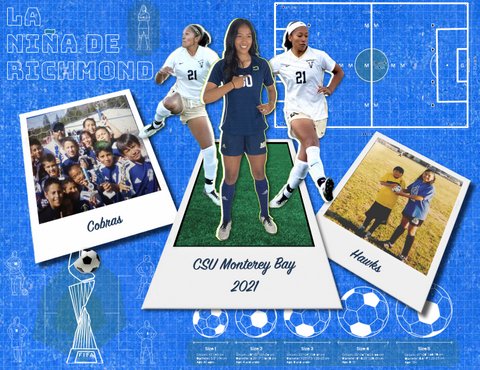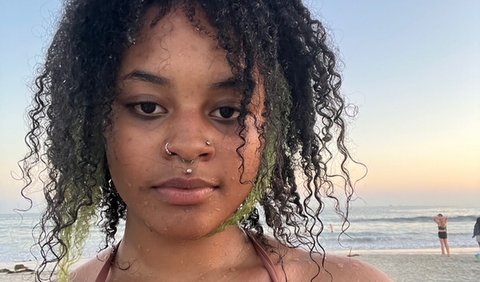
11 Jul Gender, Family and Being Labeled a ‘Tomboy’

Commentary, Hannah Mendoza
In elementary school, people called me a tomboy.
I played soccer with my guy friends and could care less about my appearance. I came to school with a low messy pony tail and wore my school uniform skirt with red leggings with snowflakes on them. I wore jeans with hand-me down-sweaters. Even the photographer on Picture Day tried to fix my hair up.
I was a loud-mouth carefree girl who always spoke her mind. I never knew what gender norms were, thinking I was just a normal happy girl.
That all changed when my family put me in my “place.”
“Why do you dress like that?” my auntie asked. “Why do you talk like that?”
My dad even compared me to my “girly” cousin — who always looked put-together with her dresses and skirts and hair done — asking, “Why can’t you be more like her?”
These comments made me feel insecure. I thought I was just being myself, but my family members made it seem like something was wrong with me. I went to school to learn and have fun, not to make a fashion statement.
My family judged me, and I didn’t understand why. All I cared about was playing four-square at recess.
I was especially confused because I was more like my mom. She also plays soccer and volleyball and other sports, and she never mentioned anything about my appearance when I was little. My mother always has her hair up in a ponytail with a braid at the end, wearing either her work or soccer uniforms while supporting my siblings and I playing sports.
So why did my other family members have a problem with it?
I finally gave in to looking “nicer.” My stepmom picked my outfits for me and straightened my naturally curly hair. I actually started to like it because when I look good, I feel good.
But I also like to feel comfortable, and when I did, my stepmom would say, “You’re really going out like that?”
I did whatever she wanted because I didn’t want to fight about it.
Elder family need to be more careful with their words, especially around gender norms. Words can stick with children throughout their lives, like it has with me. I understand they may not agree with everything that their kids do, but they should be able to sit down and talk about it maturely in a way that it doesn’t kill a kid’s self-esteem.
The whole experience has changed my taste and mindset. I can be comfortable, confident, and put-together because that’s what I want.
But what I wear and how I act doesn’t define who I am. I didn’t know that my appearance can make me people view me differently. I learned at a young age that there are these expectations kids don’t know about.
I still play sports, just not soccer anymore. I’m more passionate about volleyball now.
Now that I’m 17, when people tell me rude things, especially regarding gender norms, I don’t let it phase me because I only care about my family’s opinion. Even though they can make smart remarks, I try not to take it to heart because I know they’re only looking out for me.
Not everybody is going to view me as I view myself and that’s okay because I don’t need their approval. I’m strong enough to lift myself up.






No Comments